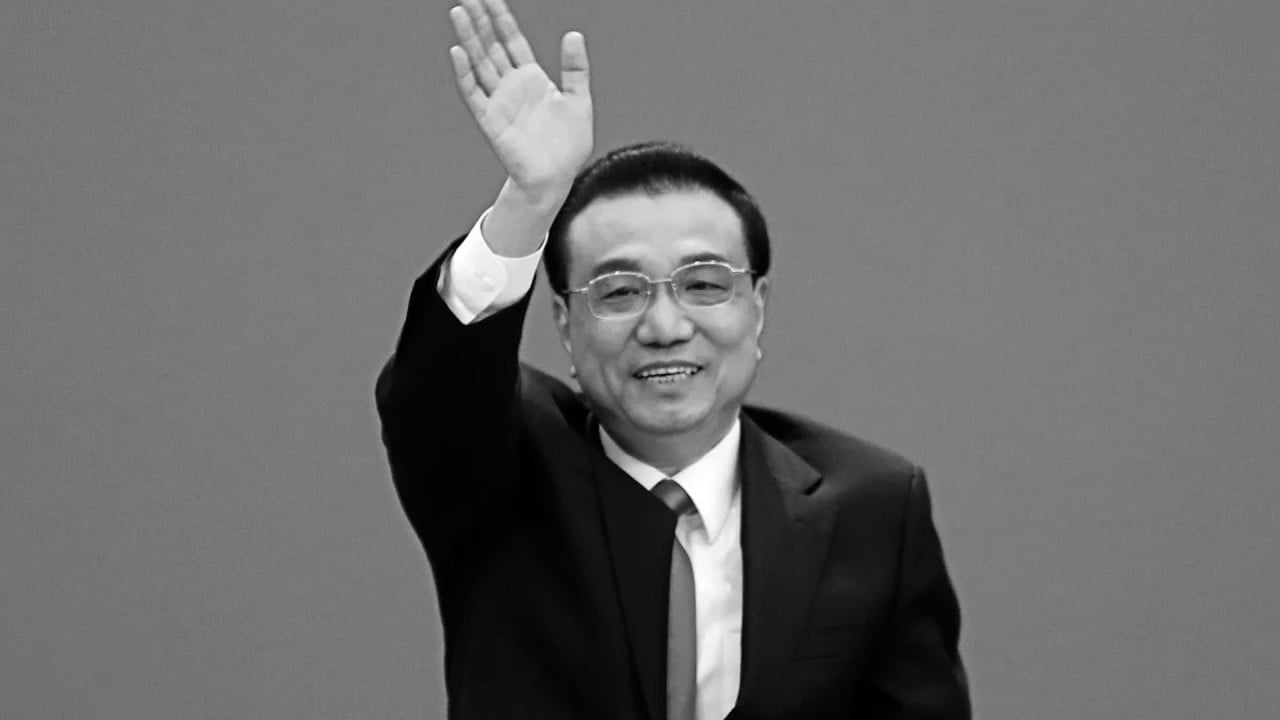
China to honour Li Keqiang with lowered flags for Thursday funeral: state media
- Chinese state media is reporting that flags will fly at half mast, giving Li the same honours that applied to Li Peng
- All official buildings, including in Hong Kong and Macau, will follow the same protocol
The requirement for official flags to be flown at half mast applies to all government buildings, as well as to Chinese embassies overseas.
The protocol for Li’s mourning puts him on a par with previous premier Li Peng who died in 2019.
Li, Keqiang who retired as China’s premier earlier this year, died of a heart attack at the age of 68 in Shanghai early on Friday morning. His body was flown to Beijing on the same day.
The sudden passing of the soft-spoken leader – known to many as “the people’s premier” – shocked the nation.
Thousands gathered in cities linked to Li’s life and career to pay tribute, laying masses of yellow and white flowers at landmarks associated with him. Millions also posted on China’s social media platforms.
Li was extolled by the ruling Communist Party as “an excellent [party] member, a time-tested and loyal communist soldier and an outstanding proletarian revolutionist, statesman and leader of the party and the state”.
It is exactly the same wording that was used on the death of Li Peng, China’s only previous premier of equal rank to have died in the past two decades.
This week’s funeral protocol will also follow the precedent set by Li Peng’s death, with all party and state leaders bidding farewell before the cremation, but without a top-level memorial meeting in Beijing.
President Xi Jinping delivered a eulogy at Jiang’s memorial meeting on December 6, 2022.
While China has adopted many Soviet-style proceedings for its mourning protocols, the remains of leaders usually rest at home or a funeral parlour for seven days so that family and friends can pay tribute, in line with widely followed Chinese tradition.
The full official announcement of Li’s death on Saturday also followed the format set in 2019 when Li Peng died. Around one third of the front page of party mouthpiece People’s Daily was devoted to the news, in an article that was almost the same length as Li Peng’s.
Analysts said the precise following of precedent was a sign that Beijing wants to show consistency and avoid any potential speculation that could arise from Li Keqiang’s unexpected death.
Deng Yuwen, former deputy editor of Study Times, official newspaper of the Central Party School which trains cadres, said there would be “little surprise” in the protocol for Li’s funeral.
“The Central Committee’s General Office will make sure every detail follows precedence, knowing any slightest departure will cause unnecessary speculations,” Deng said.
“This is especially important, as people are murmuring about conspiracy theories relating to Li Keqiang’s sudden death, given the extreme opacity of elite politics in China.”
Political commentator Chen Daoyin, a former professor at Shanghai University of Political Science and Law, said Beijing is doing everything it can to rein in the potential political risks of Li’s unexpected death.
“A proper funeral protocol is a key part of addressing the concerns from liberals. So far, it has allowed people to pay tribute to Li Keqiang freely and there has been no apparent censorship, while keeping a watchful eye on the universities,” Chen said.
“All this shows Beijing is tracking this very carefully, trying to strike a very delicate balance.”



